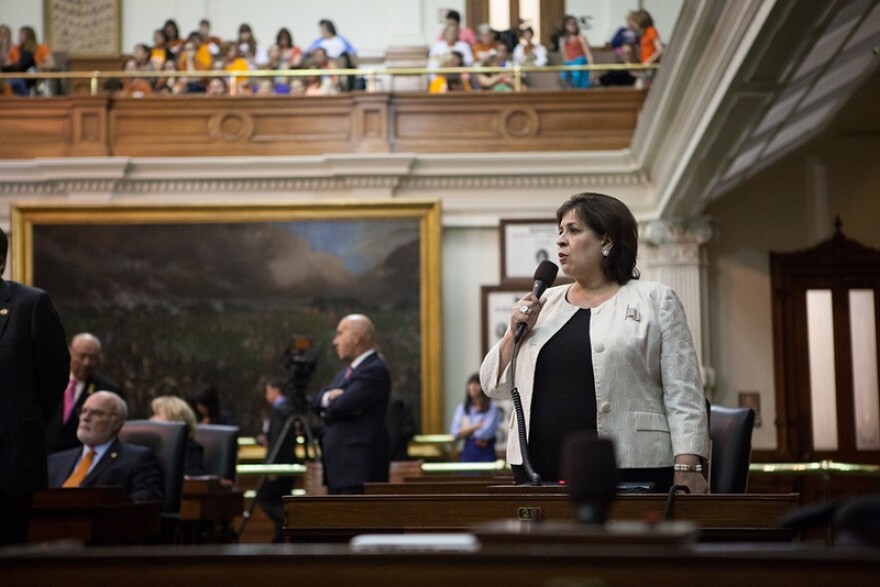Leticia Van de Putte, a Democratic state senator from San Antonio, might be part of the answer to the second question her party’s activists are asking these days.
The first question — will Wendy run? — will be answered Oct. 3 when state Sen. Wendy Davis, D-Fort Worth, announces her decision on whether to run for governor or seek re-election.
The second, and this is where Van de Putte enters the conversation, is: Who else might be on the Democratic ticket?
If there is a line for those jobs, it’s not visible. Party leaders have put their hopes in Davis’ care and in the meantime have talked to candidates who might fill out the ballot behind her. Candidates like Van de Putte.
She is a midterm senator, meaning she could run for statewide office in 2014 without much risk. A win would put her in a new office. A loss would leave her where she is now.
Van de Putte has never run for statewide office, but her experience as a state lawmaker and her role in the drama that lit up the state’s Democrats this year put her on the list of potential candidates.
Anyone urging her to do this would point out that her gender could play well in a year when the Democrats are accusing the Republicans of conducting a war on women. The senator punctuated June’s dramatic debate over an abortion bill when she broke through a wall of men’s voices to say, “At what point must a female senator raise her hand or her voice to be recognized over her male colleagues?”
That’s a decent reduction of Democrats’ objections to that legislation and of that day’s debate and filibuster. And in the context of the 2014 election, it makes Van de Putte a natural recruit for the ticket that will probably be headed by Davis, who shot to political stardom that same day.
There’s a history argument. Prospective candidate Van de Putte would not be the first Latina to run for the lieutenant governor’s office — Linda Chavez-Thompson, a union leader, ran on the Democratic ticket in 2010 — but the office has never been occupied by a woman or a Hispanic.
The biggest hurdles are obvious. Democrats haven’t won in statewide Texas elections for years. Their organization around the state withered over the last two decades, and current efforts to revive it — Battleground Texas is a prominent example — haven’t been around long enough to establish deep roots.
At the same time, political people in Texas saw something in June, when social media kicked liberals and progressives into a gear they hadn’t tried in several years. Democrats are hoping they can keep that going throughout a campaign next year.
“I am very supportive of the Democratic Party and of my friend, Wendy, but if I put my name in, it’s not just because I want to help out the team,” Van de Putte said. “If I put my name on the ballot, I would only do that if I was convinced that there is a way to win. It’s just not in my nature to do something just to place or show.”
She said a competitive Republican primary might force those contestants to what she called “the very extreme right,” and that could, in turn, create an opening for a moderate Democrat to appeal to independents and moderate Republicans who generally vote for Republican candidates.
That’s her version, by the way; Republicans are already calling her a “liberal Democrat,” giving her a little warning of what would be ahead in a general election fight.
Van de Putte is also thinking hard about what a run might mean for her family, which has had a remarkably rough year. An infant grandson died unexpectedly in May. Her father died in an automobile accident in June. Her mother-in-law died last week. Her mother was in a hospital bed as Van de Putte fielded calls last week on her future political plans.
How would she decide today?
“I would probably say my family has been through way too much in too short a time,” Van de Putte said. “We’re going to take a week or so and really look at it. It’s got to be doable, and it’s got to be a commitment from my family.”





